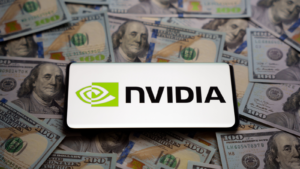OpenAI’s recent unveiling of its text-to-video generative artificial intelligence (generative AI) model may just have been the biggest thing to happen in the wild world of AI since ChatGPT. Undoubtedly, the technology will garner various emotions (awe, excitement, maybe even horror?).
It’s hard to imagine that generative AI can create incredibly realistic videos that will fool just about everybody. Undoubtedly, risks are inherent with such a profound technology—just think about the dangers of deep fakes in an election year—alongside the potential to automate numerous roles in the film industry. Despite the risks, it’s hard not to be blown away by Sora’s capabilities.
For now, there’s no firm date when Sora will be available for all to try. Only once the potential risks of the new technology are better managed will I think OpenAI will give us some timeline. Additionally, it’s not hard to imagine the added strain on the company’s GPUs once Sora is finally released to the public.
In any case, Sora shows us AI is sprinting, not just running, in AI video generation. Love it or hate it, Sora may be on the cusp of changing the world forever, in my opinion.
Let’s check in with three AI stocks that could benefit from the rise of text-to-video, a potential “next leg” to the AI boom.
Microsoft (MSFT)

With a hefty stake in Sora-creator OpenAI and close ties with its top boss, Sam Altman, it should be no surprise to see Microsoft (NASDAQ:MSFT) on the top of a list of AI plays to play the future of text-to-video. Apart from its OpenAI stake, the enterprise software giant also has some very smart managers who can spot unique talents in the smallest corners of the AI waters.
Undoubtedly, Microsoft spotted the disruptive capabilities of OpenAI well before any of us even heard of the company. And though OpenAI will play a critical part in Microsoft’s future, the firm seems more than willing to spread its bets on other smaller AI firms that show promise. Recently, Microsoft invested in a Paris-based AI startup, Mistral, which could help it gain even more ground in the retrieval augmented generation (RAG) field.
The biggest thing Microsoft stands to gain from its acquisitions has to be talent. Genius minds like Sam Altman could mean the difference between winning and losing the AI war. Looking ahead, I expect Microsoft will continue exploring deals across all corners of generative AI, from text and code generators to image and video. In the meantime, seeing how Sora plays out as Sam Altman and his team put on the finishing touches will be interesting.
Alphabet (GOOG, GOOGL)

Alphabet (NASDAQ:GOOG,GOOGL) used to be one of the go-to mega-cap AI players in the market. Oh, how the times have changed! Nowadays, some view it as a firm that the rise of generative AI technologies may disrupt its bread-and-butter business (Google Search). Specifically, large language models (LLMs) that incorporate RAG technology to help users find reliable (and not hallucinated) answers to their questions.
After a nasty Monday tumble, GOOG stock now goes for a very palatable 23.9 times trailing price-to-earnings (P/E), or around 21.4 times forward P/E. That looks cheap, but the search giant may be “cheap for a reason,” said Ben Reitzes of Melius Research, who views “moat” as “about to be disrupted.”
That’s quite a jarring statement that investors shouldn’t take lightly as LLMs continue to gain ground over traditional search engines. I have no idea how things will play out as Google looks to add some polish to Gemini. But the bear-case risks are worth careful consideration.
As Gemini seeks to relaunch its image generator after its recent fumble, the firm may wish to improve its own video generator, Phenaki, especially if Sora and video generation represent the next chapter of the AI boom.
Nvidia (NVDA)

Nvidia (NASDAQ:NVDA) is the ultimate AI chip company to play this generative AI revolution, as powerful video generators like Sora look to further drive the field of accelerated computing. Undoubtedly, Nvidia’s GPUs are tough to stack up against right now. And it could retain the lead in the AI chip race for quite some time.
That alone makes NVDA stock more than worthy of its seemingly expensive price tag (66.46 times trailing price-to-earnings). When you factor in the company’s software capabilities, Nvidia stock’s high multiple suddenly seems not high enough. Especially considering its numerous durable competitive advantages in the explosive AI market.
The $2 trillion AI behemoth could also make a mark on the world of AI-driven video generation. The company has plenty of stake in generative visual content through Nvidia Picasso. Only time will tell if Nvidia has a product that can stack up against OpenAI’s Sora. Regardless, it’s not hard to imagine Nvidia pulling the curtain on another profound AI technology that helps fuel its stock further.
On the date of publication, Joey Frenette held shares of Microsoft and Alphabet. The opinions expressed in this article are those of the writer, subject to the InvestorPlace.com Publishing Guidelines.
